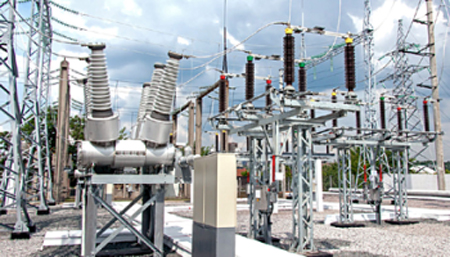Photo caption: Power facility
The Federal Government’s push to implement cost-reflective electricity tariffs for all consumers has received the backing of state governments.
This follows a resolution by the National Council on Power, a forum of federal and state government stakeholders, which reaffirmed the urgent need for tariff reform while advocating for carefully designed subsidies to cushion the impact on vulnerable citizens.
This decision was part of the resolutions reached during the sixth edition of the National Council on Power, hosted in Maiduguri, Borno State, and attended by key stakeholders from federal and state governments, regulatory bodies, and operators across the electricity value chain.
In a communiqué issued at the end of the meeting and made available to The PUNCH on Monday, the Council emphasised that the financial sustainability of the Nigerian Electricity Supply Industry hinges on tariff reforms that reflect the true cost of power generation and distribution.
“Council adopted that electricity must be paid for at a cost-reflective rate, while subsidies must still exist for the vulnerable, but must be targeted and well administered at a manageable and sustainable level,” the statement read.
The council also reiterated the importance of ensuring that such reforms are accompanied by broad-based stakeholder engagement, transparency in subsidy administration, and the deployment of technology for better targeting of support to low-income households.
The call for cost-reflective tariffs comes at a time when the Nigerian power sector is grappling with mounting market liquidity challenges, underinvestment in critical infrastructure, and rising energy costs.
The council also adopted that market liabilities must be apportioned to all parties, which will be subject to thorough engagements to ensure that assets and liabilities are allocated to all parties. It approved resolutions targeted at deepening capacity development, improving grid stability, and fast-tracking renewable energy investment across the country.
The council further mandated the National Power Training Institute of Nigeria to explore innovative means of funding a Research and Innovation Framework within the Nigerian Electricity Supply Industry, in a move aimed at fostering homegrown solutions to technical and operational challenges.
As part of its human capital development strategy, the council directed NAPTIN to engage stakeholders and refine its proposal for the establishment of a National Human Capital Development Framework, a Structured Apprenticeship Programme, and a Gender Mainstreaming Strategy for the power sector.
The refined proposal is expected to be submitted to the Minister of Power for deliberation at the Power Sector Working Group.
Further resolutions highlight the council’s intent to mobilise sub-national governments and stakeholders to support skills development initiatives and foster job creation through targeted national strategies for sustainable economic growth.
Meanwhile, the council adopted the need to construct additional Double Circuit 330/132kV transmission lines to reinforce electricity supply to the northeast and approved Borno State’s request for solar mini-grids for rural electrification in partnership with the Rural Electrification Agency.
The much-delayed Mambilla Hydro Power Project, however, remains stalled due to ongoing litigation. On transmission improvements, the council noted that the Northern Corridor Transmission Project is ongoing and is expected to stabilize the grid across the region.



